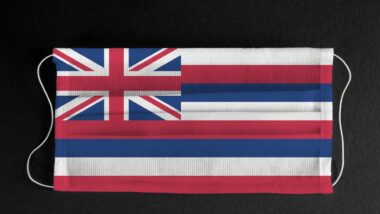Top Class Actions’s website and social media posts use affiliate links. If you make a purchase using such links, we may receive a commission, but it will not result in any additional charges to you. Please review our Affiliate Link Disclosure for more information.

A three-member panel of appellate judges agreed with the lower court’s determination that administrative segregation, a practice akin to solitary confinement, constitutes cruel and unusual punishment in violation of the prisoners’ rights. It agreed that Canada failed to heed warnings about the mental and physical harm caused by prolonged isolation.
Administrative segregation was reportedly used by correctional authorities as a last resort to protect inmates’ safety in prisons. Between 2011 and 2019, inmates were placed in isolation on 22,000 occasions and the average length of isolation was 59 days, according to court records.
Current international standards limit the acceptable length of isolation to a maximum of 15 days.
Christopher Brazeau serves as the representative plaintiff in one of the solitary confinement class action lawsuits, which challenges the isolation of mentally ill inmates in prisons.
The other solitary confinement class action lawsuit is led by Jullian Reddock and challenges the practice of placing prisoners in administrative segregation for 15 or more consecutive days.
“Canada chose to ignore repeated recommendations for some form of independent review of administrative segregation,” the Ontario Court of Appeal wrote. “Canada also continued to place inmates suffering from mental illness in administrative segregation, despite repeated warnings of the harm that this practice caused.”
Superior Court Justice Paul Perell issued a ruling last year in which he sided with the plaintiffs in both solitary confinement class action lawsuits and found trial would be unnecessary to decide the claims.
Judge Perell awarded $20 million in preliminary damages in each solitary confinement class action lawsuit. In the long-term solitary confinement case, he determined the inmate Class Members should get the money. For the mentally ill inmate case, he determined the money should be put toward making “structural changes” in prisons to improve conditions for inmates with mental illness.
In its appeal, the federal government argued that Judge Perell should have only issued a ruling after allowing the solitary confinement class action lawsuits to go to trial. Canada argued that it was only recently that courts characterized the practice of administrative segregation as cruel and unusual punishment.
The Ontario Court of Appeal disagreed, finding there was “ample evidence” that Canada failed to heed warnings of the devastating psychological effects that isolation can have on prisoners, especially when they are isolated for lengthy periods of time.
“In international law, for at least 30 years, there has been a growing recognition of the need to eliminate use of solitary confinement for prisoners with mental illness and strictly limit its use for all prisoners,” the Ontario Court of Appeal wrote.
“The charter breach has caused severe harm to very vulnerable people and the state’s conduct has been condemned as being cruel, excessive, abhorrent and intolerable.”
The Appeal Court ordered the government to pay the plaintiffs $75,000 to cover their legal costs.
Do you think solitary confinement constitutes cruel and unusual punishment? Tell us your opinion in the comment section below!
ATTORNEY ADVERTISING
Top Class Actions is a Proud Member of the American Bar Association
LEGAL INFORMATION IS NOT LEGAL ADVICE
Top Class Actions Legal Statement
©2008 – 2024 Top Class Actions® LLC
Various Trademarks held by their respective owners
This website is not intended for viewing or usage by European Union citizens.















2 thoughts onSolitary Confinement Constitutes Cruel and Unusual Punishment Ontario Court Rules
I have spent years in solitary confinement. The Hole… I was in the Guelph Ontario Reformatory in 1972 and spent 30 days on nothing but 1 slice of bread and 1/2 cup of tea. Once a day. They did give us Beancake… However, it was inedible. It smelled so bad, I just couldn’t eat it. I got so sick after the 30 days, they returned me to my job at the drillpress. Within the first hour I fainted, I was eventually taken to the hospital, where they removed my tonsils…
Since I’ve been in solitary confinement (15days), I haven’t been the same. Not only was I in solitary confinement I was only allowed a suicide blanket nothing else no nat to sleep on or anything. I don’t like to leave my home now or be around people. It’s like I’m stuck in that mindset now. I really can’t explain but it’s a terable way to live. This happened in Texas where they treat the pigs better than the inmates.